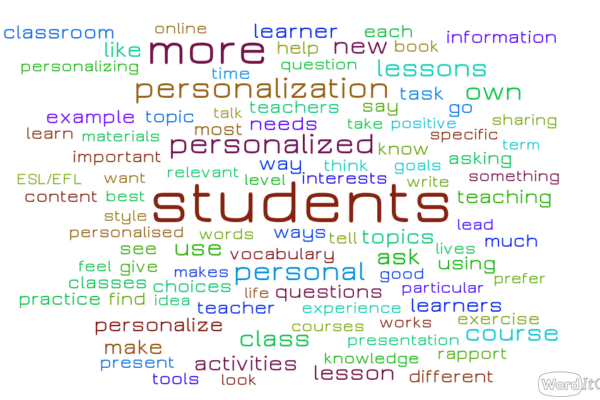Enhancing Lexical Strategies – Learning By Heart or Memory Habit Formation?
It goes without saying that vocabulary is one aspect language acquisition that plays an important role when learning one mother’s tongue, let alone a foreign language. I have often had learners saying that they can fairly get by grammatical structures and the real factor holding them back is how to put words within this lexical construct.
Unfortunately, there is no magic formula through which one can get by learning new lexis, being it from the word level to the sentence level; however, memory seems to be one key element so as to improve this area which seems to be extremely strenuous for some learners.
I can clearly remember my early years of learning English and memorisation was something that was a huge part of my strategies. And it is obvious to notice that memorisation alone was never sufficient to compensate for the lack of vocabulary I was facing at that time. What I have noticed is that, as opposed to memorisation what I needed to develop was a memory habit formation. In other words, I need to come up with strategies or habit formation that would allow me to speed up as well as enlarge the mental lexicon. Since such a thing has been doing wonders to me, it is obvious that as an educator I try and pass these strategies onto my learners.
- Keep your eyes open: we are bombarded by the written word and being attentive to how the words are ‘mathematicalised’ is one way to gain knowledge of new lexis. Not only will reading expose you to information but it will also serve as springboard to expand your linguistic abilities concerning new vocabulary. As you can read at your own speed, you can always float through the text and jot down chunks you judge appropriate to your mental lexicon. Once attention is drawn to the new chunks you meet, it is only a matter of time to notice how frequently such lexical items crop up.
- Keep your mouth open: exercising your speaking skills is another way of storing new vocabulary. The instant one gives voice to the new words, chunks and sentences there is every likelihood that they will go from the passive phase to the active one. That is, by checking how the lexical items are pronounced and working on pronunciation, in the least bit, one will be eliminating options in order to achieve a good level of intelligibility.
- Keep your ears open: listening is another wonderful source of acquiring new vocabulary. The same sort of training applies to listening texts on the grounds that the written word will somehow appear in spoken language. By eyeing and voicing the new lexical items previously met, it is fair to conclude that the simple recognition of such items will jump into acting and reacting upon them. Consequently, motivation and the sense of achievement will add to learning.
- CUDU dichotomy: ‘Could Use Don’t Use’. That is a crossroads many learners come to in the sense that they become aware of their lexical potential but avoid activating such potential. I always try and make room to activate new lexis I learn. This means that I am bringing this strategy to my daily-basis learning in order to enhance, what I call now my ‘memory habit formation’. Simple things such as changing the language on your phone, watching films with CC, post messages in English on social media websites, texting your friends in English can definitely make a huge difference in the end of the day.
- Figures to figure out: if you are a visual learner just like me, you will find yourself visualising words and chunks in order to capitalise on learning. This strategy best adds to learning when it is associated with emotions. Feelings bring about personalisation, hence the instant you are emotionally involved there is a fat chance that you will be able to retrieve lexical items more easily and naturally.
As I see it, memorising words in L2 might be a daunting thing to learners in general and I always tell my students that I cannot learn new vocabulary for them. However, as educators we can help students out through a full variety of strategies to work on ‘memory habit formation’ as opposed to only ‘memorisation’. It is true that doing physical activities helps you exercise your body. By the same token, working on memory is instrumental in helping you learn, store and activate new lexical items






